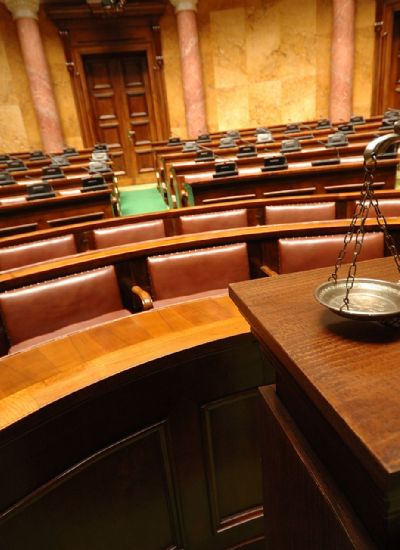The High Cost of Death: What You"ll Pay to Settle a Trust
A common misconception about Revocable Living Trusts is that there's little or no cost involved in settling the trust after the Trustmaker dies.This is absolutely not true.While the overall cost of settling a Revocable Living Trust should be less than settling an estate through the probate court, there's plenty of fees involved in settling a trust.The various fees and costs associated with settling a Revocable Living Trust after the Trustmaker dies are as follows:
These fees are either dictated by the terms of the Revocable Living Trust agreement or state law.Usually state laws will provide guidelines as to what is referred to as a "reasonable fee," by taking into consideration how complex the trust is to adminster and settle, whether the Trustmaker's estate is taxable, and whether the validity of the trust or the choice of Successor Trustee is challenged by the trust beneficiaries.
These fees will vary depending on the overall value of the trust and the type of assets owned by the trust.For instance, a small trust that nonetheless owns 25 different stocks and bonds may generate more accounting fees than a larger trust that owns a primary residence, a bank account and a CD.Of course, if the Trustmaker's estate is taxable at the state and/or federal level, then the accounting fees may include the preparation and filing of the state and/or federal estate tax returns if the attorney for the trust doesn't prepare and file the returns.
These fees will be necessary to determine the date of death values of real estate, personal property (including jewelry, antiques, art work, boats, cars and the like), and business interests.Appraisal fees for personal property can range anywhere from a few hundred to a few thousand dollars, while business valuation fees will run several thousand dollars.
These fees can range anywhere from the cost of postage to mail documents to the Successor Trustee and trust beneficiaries and to taxing authorities; to the cost of insuring and storing personal property; to the cost of shipping personal property; to the cost of moving personal property.
After adding up all of these fees and costs, you can count on settling your Revocable Living Trust taking anywhere from less than 1% to 5% of your assets away from your beneficiaries, which doesn't include estate and income taxes that may be due and payable during the course of the trust administration.Compare this with the cost of settling your estate through the probate court, which will range anywhere from 3% to 8% of your assets.
•Successor Trustee Fees
These fees are either dictated by the terms of the Revocable Living Trust agreement or state law.Usually state laws will provide guidelines as to what is referred to as a "reasonable fee," by taking into consideration how complex the trust is to adminster and settle, whether the Trustmaker's estate is taxable, and whether the validity of the trust or the choice of Successor Trustee is challenged by the trust beneficiaries.
•Attorney's Fees
These fees are also either dictated by the terms of the Revocable Living Trust agreement or state law and are usually calculated in a similar manner as the Successor Trustee's fee.•Accounting Fees
These fees will vary depending on the overall value of the trust and the type of assets owned by the trust.For instance, a small trust that nonetheless owns 25 different stocks and bonds may generate more accounting fees than a larger trust that owns a primary residence, a bank account and a CD.Of course, if the Trustmaker's estate is taxable at the state and/or federal level, then the accounting fees may include the preparation and filing of the state and/or federal estate tax returns if the attorney for the trust doesn't prepare and file the returns.
•Appraisal and Business Valuation Fees
These fees will be necessary to determine the date of death values of real estate, personal property (including jewelry, antiques, art work, boats, cars and the like), and business interests.Appraisal fees for personal property can range anywhere from a few hundred to a few thousand dollars, while business valuation fees will run several thousand dollars.
•Miscellaneous Fees
These fees can range anywhere from the cost of postage to mail documents to the Successor Trustee and trust beneficiaries and to taxing authorities; to the cost of insuring and storing personal property; to the cost of shipping personal property; to the cost of moving personal property.
After adding up all of these fees and costs, you can count on settling your Revocable Living Trust taking anywhere from less than 1% to 5% of your assets away from your beneficiaries, which doesn't include estate and income taxes that may be due and payable during the course of the trust administration.Compare this with the cost of settling your estate through the probate court, which will range anywhere from 3% to 8% of your assets.




















